Liu Peiqi: From a six-year walk-on to an international film winner, the little guy eventually became a hero.
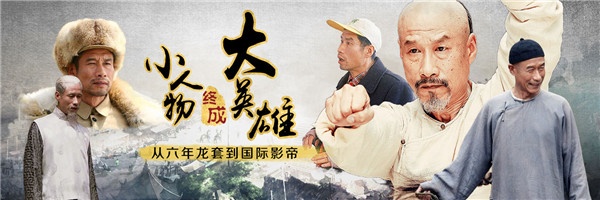
Special feature of 1905 film network As we all know, 2017 is the year of structural adjustment and quality improvement of China’s film industry. With the promulgation of the Film Industry Promotion Law and other management regulations, the whole film and television industry has become increasingly rational and healthy, and the old actors who have been silent for many years have also ushered in the second spring of performing arts. At the beginning of the year, "in the name of people" brought fire to a number of old operas such as WU GANG and Zhang Zhijian, and then to the recent "White Deer Plain", which made Zhang Jiayi, He Bing, Liu Peiqi and other operas loved and sought after by young audiences. It can be seen that the audience has become increasingly mature. In addition to appreciating the youthful vitality of "small fresh meat" and "small flowers", they have also begun to praise the powerful actors for shaping their roles, honing their acting skills and pursuing art.
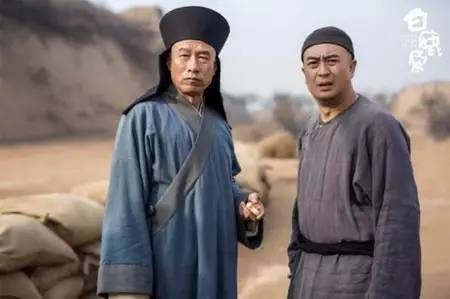
Speaking of these old opera bones, we can’t help but mention that we have created more than 110 characters in the art for more than 30 years, and played a lot of little people’s opera bones with a pair of small eyes — — Liu Peiqi. Liu Peiqi, who is nearly sixty years old this year, has been well known by audiences of all ages. He has won many important awards for best actor at home and abroad, and 2017 will undoubtedly push his acting career to another peak.
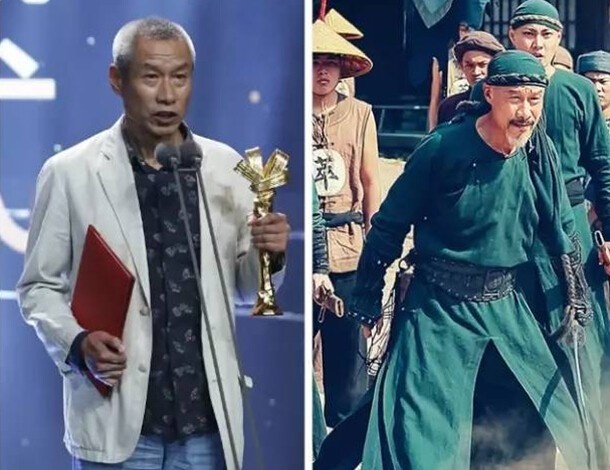
The film starring him will be fully released in domestic cinemas on August 4th. Not long ago, at the 20th Shanghai International Film Festival, he won the most watched actor award in the media attention unit of the film channel for his role of Feng Zicai, a famous actor in the late Qing Dynasty portrayed in Battle of the Dragons. Recently, Mr. Zhu, portrayed by Liu Peiqi in the TV series "White Deer Plain", has attracted wide attention. Next, he also participated in the annual drama "Flowers bloom and the moon is full that year" starring Sun Li, Chen Xiao and Peter Ho, and the director Chen Kaige will also meet the audience at the end of the year. Let’s wait and see Liu Peiqi’s superb performance in these film and television works.
Young, down and out, precarious
Liu Peiqi, who is best at shaping little people, has created many classic film and television images, such as Qiao Anshan in the film, Liu Cheng, the father of the film, Bai Yingyu, the third master of the film, etc., all of which are deeply rooted in the hearts of the people, and have won many awards such as Golden Rooster Award and Huabiao Award as the best actor. But his acting career didn’t go well at first.
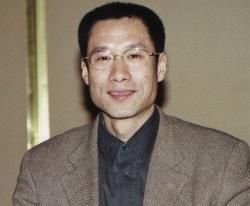
Liu Peiqi started practicing martial arts at the age of 5, studied dance at the age of 12, became a soldier at the age of 17, and was admitted to the PLA Art College at the age of 20. Because he was rebellious when he was young, he was not used to all kinds of rules and constraints in the army, so he was "disciplined" and assigned to the Xinjiang Military Region Drama Troupe when he graduated. Two years later, Liu Peiqi resolutely returned to Beijing without giving up her dream of performing. At that time, he didn’t have a place to live. He stayed at a friend’s house. When he was poorest, he only had 5 cents on him. He couldn’t even afford to take a bus. He even walked for two hours in order to eat at a familiar house.
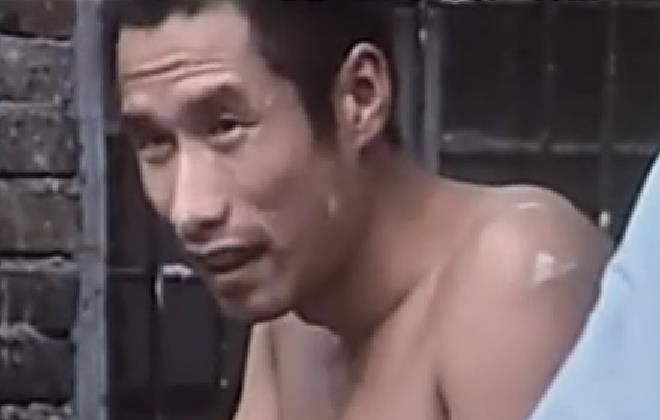
But this time was not in vain. It taught Liu Peiqi to observe life and cherish opportunities. It wasn’t long before he was Peisi Chen’s discerning eye and acted as a Virgo on the screen. He plays the unemployed youth Shunza, although his role is not big, but his gestures reveal the life spirit and market spirit of Beijing Hutong youth. This performance made him famous in the entertainment industry, and his life gradually settled.
Meet a noble person and grasp your destiny
After running for six years, Liu Peiqi met a great man in his life — — Zhang Yimou played Wang Qinglai, the husband of Gong Li. At that time, Zhang Yimou planned to weaken her husband’s scene in the way of the previous film, leaving only one scene for Liu Peiqi. However, after in-depth discussion and communication with Liu Peiqi, Zhang Yimou changed his mind and expanded his play to seven scenes.
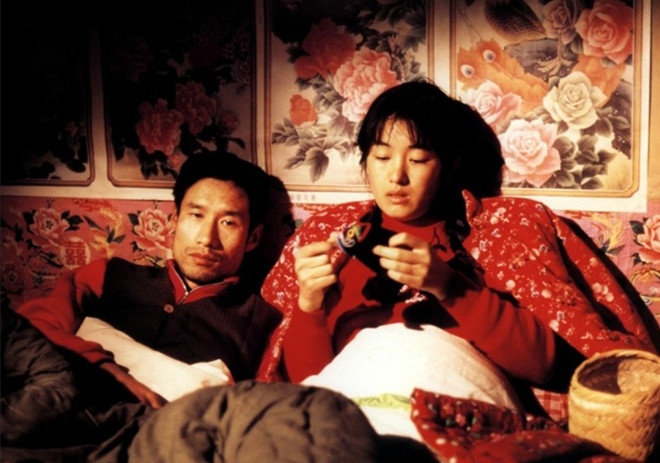
How did Liu Peiqi persuade Zhang Yimou? In fact, he just talked about his views on Zhang Yimou. Li Baotian, the nephew, peeked at a scene of his aunt Gong Li taking a bath through a crack in the wood. Liu Peiqi thought it was too simple in the film. If he plays his nephew himself, he will first grab a handful of grass to block the cracks in the wood, because he knows that this is immoral and incest; But I couldn’t bear the inner torment, but I still wanted to see it, so I picked up all the grass one by one. Therefore, it is this repeated pondering over the role and the improvement of performance that moved Zhang Yimou.
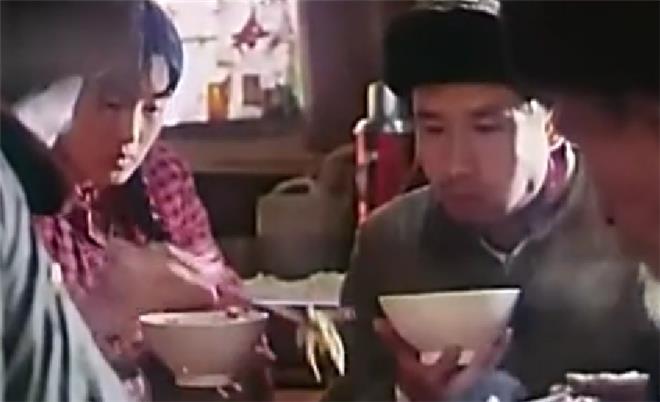
Later, Zhang Yimou was right. In order to play the peasant image in Autumn Chrysanthemum, Liu Peiqi experienced a month’s life in the countryside and studied Shaanxi dialect. He set his goal not to let the audience see that he was an actor. His goal has been achieved, and all the audience who don’t know him think that the director played the role of a farmer from the local area. So there are no small roles, only small actors. Liu Peiqi has been practicing the craftsman spirit and artistic pursuit of the actors with his own practical actions.
Leading the way, double film actor
Liu Peiqi has always maintained a good attitude and tried his best to interpret every little person and bit part, but he didn’t expect that little people could become real protagonists if they played too much. In 1996, he finally ushered in the first film starring "Days of Leaving Lei Feng". Based on the story of Qiao Anshan, a comrade-in-arms of Lei Feng, the film tells his true experience of adhering to the spirit of Lei Feng and doing good things for the society and others all his life after his death. I believe many people have watched the film by schools and organizations, but it is not the grand and official theme film in our impression. It is particularly realistic and life-oriented, showing all the little things in Qiao Anshan’s daily life, but it is always touching. Every time I see the audience in tears, I can’t help watching it again and again.
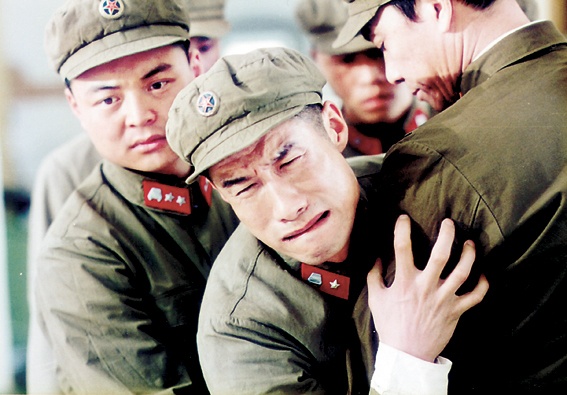
In order to create a good hero, Liu Peiqi took the initiative to go to Qiao Anshan’s hometown, listening to his every story and observing his words and deeds. According to Qiao Anshan’s account, Liu Peiqi also added the plot that when he was a bus driver, he ordered the relatives of the stationmaster to get off the bus and queue up to buy tickets. By communicating with Qiao Anshan and pondering the characters’ hearts, Liu Peiqi vividly portrayed Qiao Anshan’s reverence for Lei Feng, his apology for accidentally killing Lei Feng, and his later inheritance and practice of Lei Feng’s spirit.
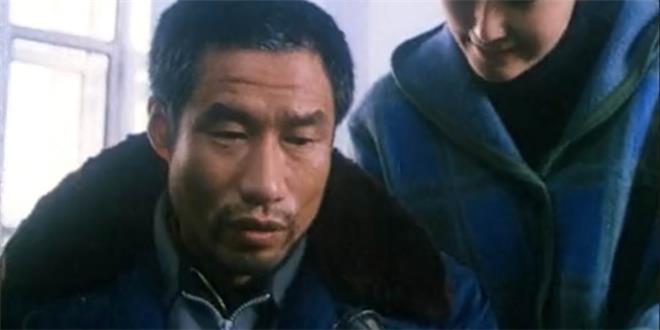
The most impressive scene is the climax of the film: Qiao Anshan did a good deed to send the grandfather who had a car accident to the hospital, but was branded as the driver by the grandfather’s children and attacked him for killing Lei Feng. In this play, Liu Peiqi expressed Qiao Anshan’s inner struggle, grievances and forbearance, which made the audience all moved. It was this wonderful performance that made him the double winner of the Golden Rooster Award and the China Watch Award.
Join hands with the great guide and enjoy a good reputation overseas.
What made Liu Peiqi the winner of the International Film Festival was With You, directed by Chen Kaige, which made him the best actor in the Spanish San Sebastian International Film Festival. In the film, Liu Peiqi plays an ordinary chef, Liu Cheng, who finds an abandoned baby, Koharu, with a violin beside him at the train station. For many years, Liu Cheng regarded Koharu as his own and tried his best to train him as a violinist. In order to improve Koharu’s piano skills, the father and son came to Beijing to learn from the teacher, and Liu Cheng paid the tuition for Koharu with the money earned from working.
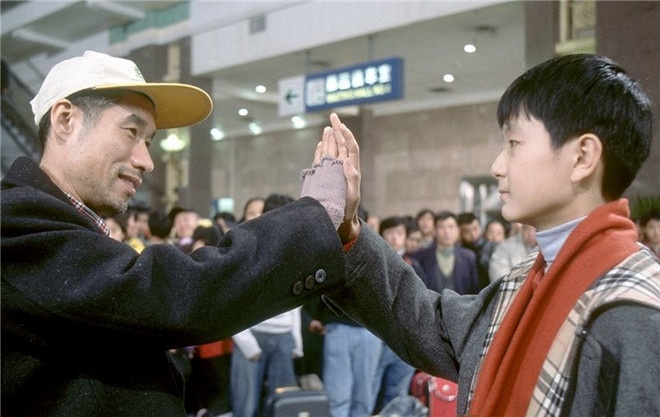
Different from the little people played in the past, this time Liu Peiqi not only showed the simplicity of Liu Cheng, but also showed the small calculations and calculations of the little people. In order to get a better education for Koharu, Liu Cheng persuades Mr. Jiang (Wang Zhiwen) from the Children’s Palace to give up Koharu and let him join Professor Yu (Chen Kaige). This scene is stubborn and even a bit contemptuous. However, this father, who puts himself down for his son and runs around in all directions, can’t help but remind people of Zhu Ziqing’s Back, and can’t help the audience lamenting that he can pay so much silently for a child who has no blood relationship without asking for anything in return, which is even more touching.
Join forces to shape classics.
Despite being highly praised in the film circle, Liu Peiqi’s most familiar role is Bai Sanye in the TV series "Da Zhai Men". In 2001, "Dazhaimen" became the champion of that year with a rating of 17.74, and it is no exaggeration to describe it as an empty alley. Director Guo Baochang spent decades trying to find Gaowa Siqin, Chen Baoguo, Jiang Wenli, Caifei He and other actors to join forces, and a series of actors were Zhang Yimou, Chen Kaige, Jiang Wen, Zhang Fengyi, Li Xuejian and Ning Jing. However, in such a top-level lineup, Liu Peiqi played the role of Bai Sanye, which not only did not fall, but became the most eye-catching role in the whole play.
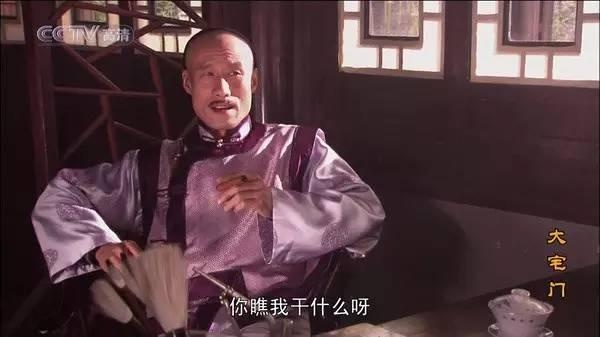
Bai Sanye was a dude from the beginning. He ate, drank, gambled and gambled all day. Whenever he got a chance, he gave Gaowa Siqin’s second sister-in-law a trip to find ways to embezzle the property. The most abominable thing is that when Eight-Nation Alliance invaded China, he became a foreigner’s dog leg and hurt his own sister. Liu Peiqi, who rarely plays the villain, makes Bai Sanye’s careless character so annoying.
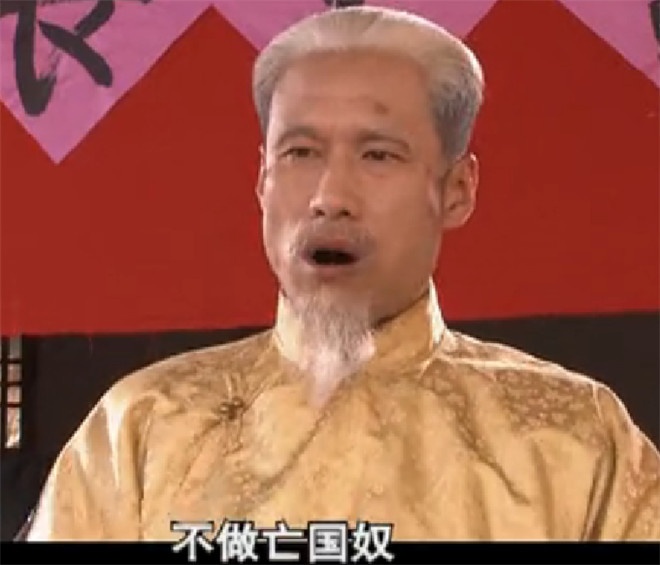
But later, with the growth of age, after the death of Ersao and her son, in the face of Japanese aggression, Bai Sanye’s thought changed greatly. The most wonderful scene is his last scene. In order to protect his nephew Bai Jingqi, he volunteered to be the president of the Chamber of Commerce of the Drug Store, but after warning all his colleagues not to be traitors, he ended his life with opium. Liu Peiqi’s play was handled very succinctly, without any superfluous expression or action, and every word was hit the floor. In just six minutes, he created a real man who was full of flesh and blood, could correct his mistakes, and was full of iron.
An old horse has a long ambition.
In The Battle of the Dragons, which will be released on August 4th, Liu Peiqi continues the spirit of Bai Sanye not being conquered people before, and plays Feng Zicai, the general of the extraction army. In 1885, the Qing government was poor and weak, and was invaded by western powers. Feng Zicai, who was nearly 70 years old, was ordered by the crisis, exhausted all his possessions to form an army to fight against the French invaders, and won the most important victory in the anti-aggression war in China’s modern history, that is, the famous town of Nanguan.
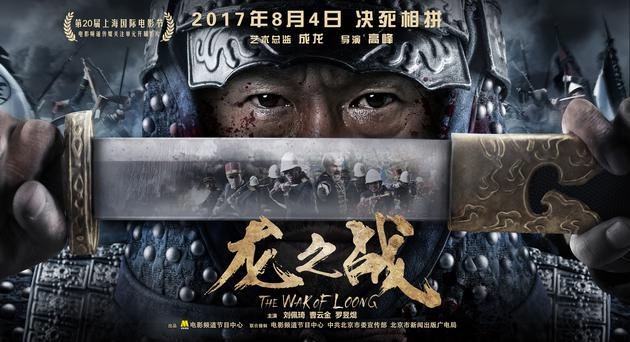
In order to portray the character Feng Zicai, Liu Peiqi wore heavy sword and armor in the high temperature of more than 40 degrees, shooting a lot of circus, water show and even action scenes. Three of the most important "killing scenes" gradually showed Feng Zicai’s courage, resourcefulness, loyalty and patriotism: in the first scene, Feng Zicai personally went into battle with the French generals unarmed, and Liu Peiqi successfully completed this close combat scene by relying on his martial arts skills and good physical quality; In the second game, Feng Zicai punished the officials who deducted the pay, and Liu Peiqi showed the game and struggle of officialdom with a few eyes; In the third game, in order to carry out the military law, Feng Zicai, Liu Peiqi, who was caught between the national justice and the feeling of getting a calf, was deeply concerned. Therefore, this performance made him win the honor of film emperor again.
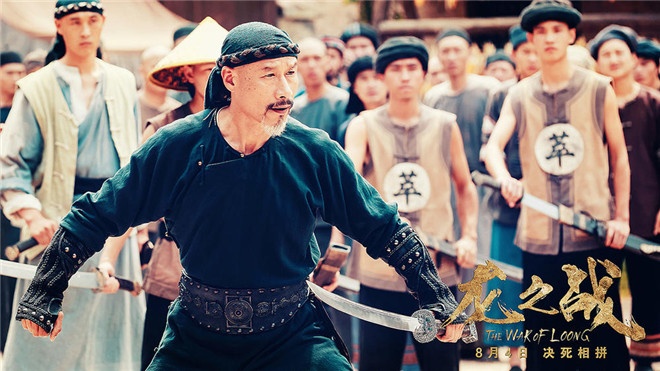
When Battle of the Dragons was shown at this year’s film festival, Liu Peiqi, who watched the finished film with the audience, burst into tears several times. He choked and said, "I have been filming for more than 30 years, and I have never been so excited after watching the film. I can’t control my feelings completely. Because "Battle of the Dragons" gave me a confidence in movies — — We have a big movie in China! After watching this movie, you will feel that as a Chinese, you are too proud and proud. The Battle of the Dragons is a movie that every Chinese should see! " It is this sense of pride that makes Liu Peiqi, who is old, bite his teeth to finish this hard shooting, contribute his textbook-like acting skills and create a national hero with indomitable spirit.
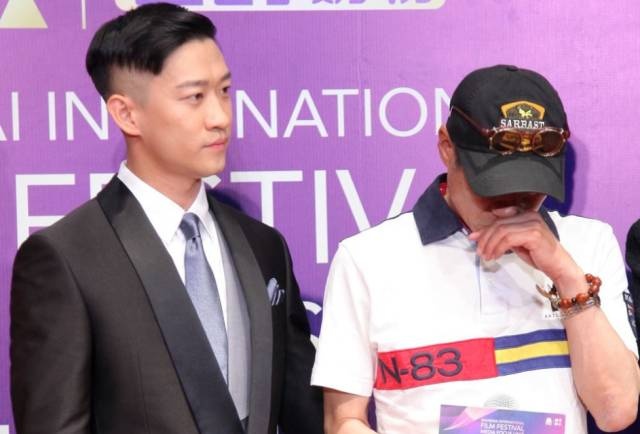
Liu Peiqi has been acting for most of his life, never stopping, receiving three or four plays every year, creating more than 110 vivid and vivid film and television images. He never picks a role, no matter whether it’s a nobody or a big shot, bit part or a leading role, positive or negative, he takes it seriously and ponders it carefully. He doesn’t have any material desires, and he doesn’t have too high requirements for film pay and treatment, nor does he expect to be as rich and expensive as other actors. The most rare thing is that in the impetuous and extravagant entertainment circle, he has always adhered to the persistence and initial heart of performance, and managed his own acting career in the most natural way, as if a clear stream flowed into the memory of thousands of audiences. When to retire, in his own words: "Until one day I can’t climb any further, and even turning over is a luxury, I will rest."